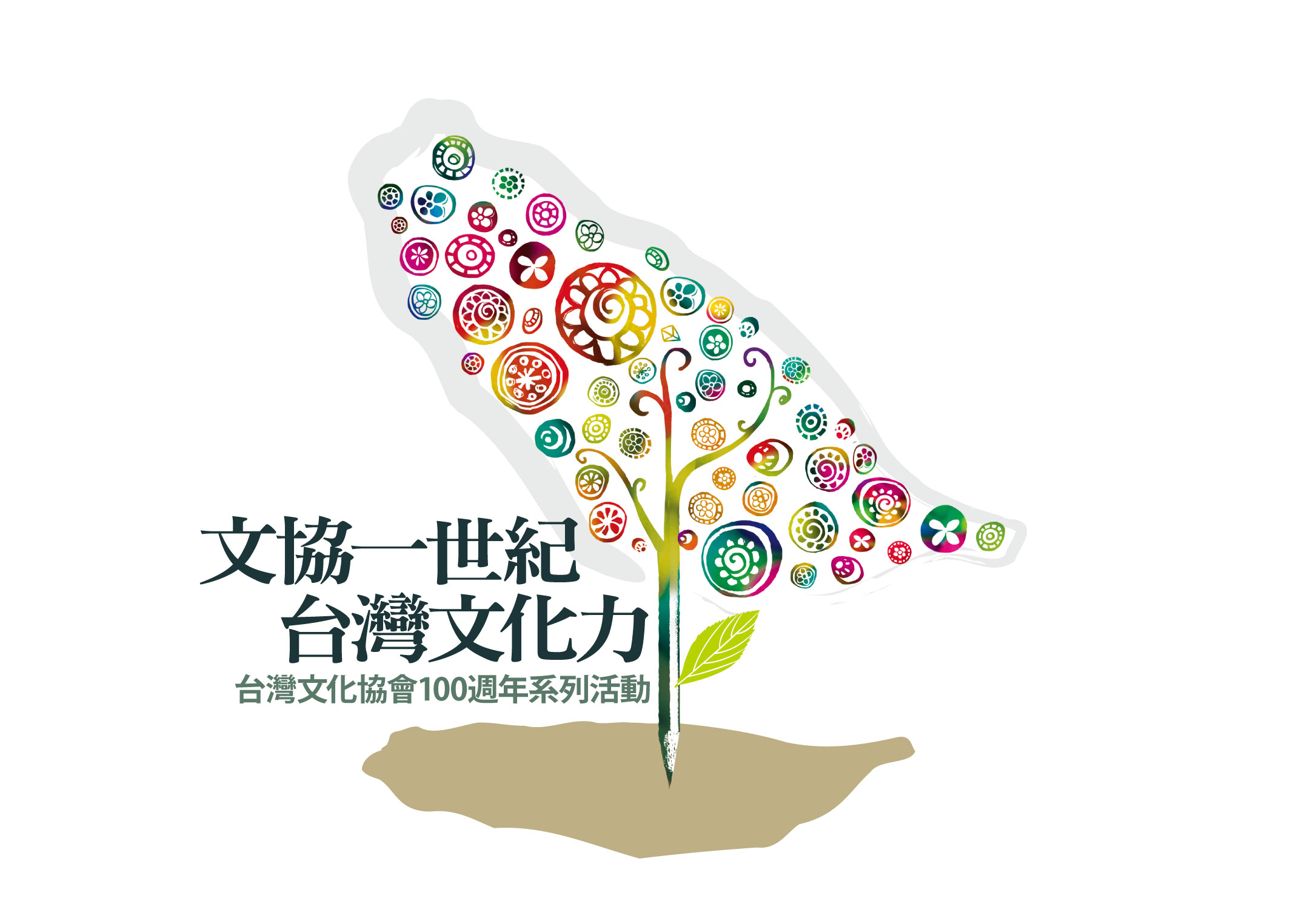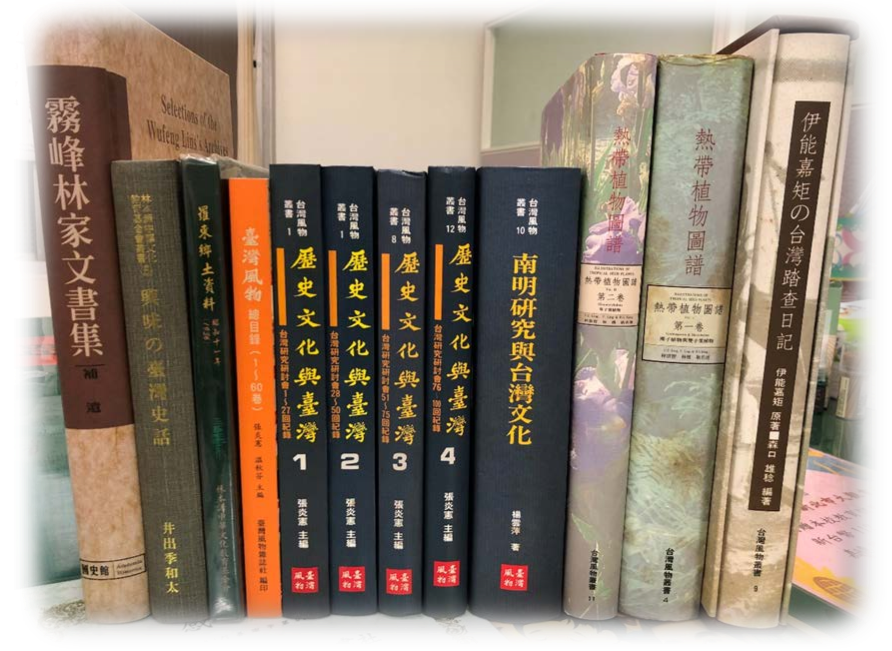 林獻堂與近代台灣民主運動
林獻堂與近代台灣民主運動
Lin Hsien-tang and the contemporary Taiwan democracy movement
戴寶村/Tai Pao-Tsun
2001-10-22

Keelung personages welcoming Petition Committee members in 1925.
新世紀之初,適逢台灣文化協會成立八十週年紀念。回顧此一民主里程碑成立之初,第一任總理林獻堂先生以其崇高理想與溫和堅定的行動力,藉由文協設讀報社、舉辦文化演講與夏季學校等活動,向當時的殖民日本政府表達台灣人追求自主自治的決心,也向世人昭示台灣人在民主的道路上所做的努力與成果,近代台灣民主運動的序幕於焉展開。本週「台灣歷史之窗」特別邀請中央大學歷史系教授戴寶村執筆,由這位集財富、聲望與道德勇氣於一身的民族領袖談起,探討其生平行誼與近代台灣民主運動之關係。
This first year of the new century marks the 80th anniversary of establishment the Taiwan Culture Association (台灣文化協會). Looking back on the early days of this milestone in the history of Taiwan, it was in large part due to the efforts of the Association’s first chairman Lin Hsien-tang (林獻堂), with his soaring ideals and gentle but firm motive power, and through such association-sponsored activities as “news reading clubs,” culture-related speeches, and special summer schools, that the Japanese government was given notice of the Taiwan people’s will to self-determination and self-rule. This chapter in history also serves to explain to the world the efforts and accomplishments of Taiwan’s people in the early stages of the contemporary Taiwan democracy movement. This Week’s “Window on Taiwan” invites Professor Tai Pao-Tsun of the National Central University Department of History to discuss the nationalist movement through focusing this nationalist leader combining wealth, prestige and moral power in one person, tracing the path of action his life took, and examining its relationship with the contemporary Taiwan democracy movement.
父親的影響
一八八一年十月二十二日林獻堂出生於豪富的霧峰林家,七歲開始他在林家所設的家塾接受啟蒙教育,在國學教養上受益良多,家庭環境與教育對他的性格影響更深。他父親文欽待人處事溫雅和善,而且熱心公益。他曾召勇營參與抗法戰爭,組抗日義軍,平時亦修路建橋設渡,施診賑災。林文欽好學與溫和慈善的性格對林獻堂影響頗深,其人溺己溺、以天下為己任的襟懷,促使他長期投身於台灣民族活動。
Father’s Influence
Lin Hsien-tang was born into a wealthy family in Wu Feng (霧峰) [in present-day Nantou County] on October 22, 1881. At the age of 7, he began his initiatory education in the village school established by his family, deriving great benefit from his study of classic Chinese writings. He was deeply influenced by his family environment and education. His father, Lin Wen-chin (林文欽) was gentlemanly and kind in his treatment of others and handling of affairs and was enthusiastic in working for the public welfare. He organized a militia to fight in the war of resistance against France and organized another force of volunteers to resist the Japanese. He routinely gave support for such public works as road repair, bridge and river ford construction, provision of community medical care and disaster relief. Lin Wen-chin’s love of learning and compassionate nature had a quite profound influence upon Lin Hsien-tang. Moved by other people’s suffering, and regarding the world’s problems as his own, leading him to play an active role in Taiwan nationalist movement over a long period of time.
一九○二年獻堂受邀出任霧峰區長,翌年辭職,後來不得已再受任命。一九○五年出任台灣製麻株式會社(設於豐原)取締役(董事)。這時期他伸展思想的觸角,曾閱讀《萬國公報》、《新民叢報》、《民報》等雜誌,並且由堂姪幼春(一八八○~一九三九)的推介而開始心折梁啟超所提倡的民族、民權主義,逐漸醞釀出日後民族運動的方向。
In 1902, Lin Hsien-tang was invited [by the Japanese colonial government which ruled Taiwan for 50 years from 1895 to 1945] to serve as the Wu Feng regional chief. In the following year he resigned but was later prevailed upon to once again serve in that office. In 1905, he served as torishimariyaku(president) of the Taiwan seima kabushiki in Fengyuan. At this time his thinking was broadened through reading of such magazines as the “Pan-National Public Report”, “New People’sReport” and “People’s Report”. Further, after being introduced to the thought of Liang Ch’i-ch’ao [a major political and social thinker from mainland China] by his cousin’s son Lin Yu-chun (1880-1939), he began contemplating the concepts of nationalism and democracy as advocated by Liang, gradually setting the direction of development which the nationalism movement would later take.
巧遇梁啟超,確立溫和民主路線
一九○七年獻堂首次旅遊日本,在奈良戲劇性地巧遇梁啟超,雙方談及台灣人所受之不平等待遇和台胞如何爭取自由平等,梁啟超告以中國在三十年內無力助台胞爭取自由,台胞不可輕舉妄動作無謂犧牲,宜倣傚愛爾蘭對付英國的手段,厚結日本中央政界顯要,牽制台灣總督府的政治,使其不致過份壓制台人,這番談話成為日後獻堂從事民族運動採取溫和路線的原則。
Chance meeting with Liang Chi-chao sets foundation for moderate democratic approach
When Hsien-tang visited Japan for the first time in 1907, he had a rather dramatic chance encounter with Liang Ch’i-ch’ao in Nara. The two discussed how the people of Taiwan were the victims of unequal treatment [by the Japanese colonial government] and how they might struggle to attain freedom and equality. Liang told Lin that China would not be in a position to help the Taiwanese win freedom for the next 30 years; that the Taiwanese must not act rashly and make a meaningless sacrifice; and that it was best for the Taiwanese to emulate the tactics of the Irish toward the English government — making friends with prominent politicians in the Japanese central government with the aim of placing restraints upon the Japanese Viceroy office’s governance of Taiwan, keeping it from flagrantly oppressing the Taiwanese. [The non-violent strategy discussed in] this conversation became the principle underlying Lin Hsien-tang’s subsequent moderate approach in the Taiwan nationalist movement.
一九一一年四月六日梁啟超下榻萊園五桂樓,討論政治、經濟、文化、教育與民族運動諸問題,並勸獻堂要多研究政治、經濟、社會、思想等學問,並開列東西書籍約達兩百種,使其眼光更為開闊,梁啟超旅台對林獻堂影響最深的是指引其採行非暴力的民族運動,並對其思想、學問有所啟發 。
In 1911 Liang Ch’i-ch’ao came to Taiwan, residing in Laiyan (萊園) at the “Five Osmanthus Pavilion.” He discussed politics, economics, culture, education, and nationalist movements with Lin, urging him to do more reasearch readings in politics, economics, sociology, and general thought, and drawing up a list of about 200 books on these topics from East and West in order to broaden the horizon of Lin’s understanding. Besides the general effect of stimulating the development of Lin’s thought and learning, the deepest influence upon Lin from Liang’s sojourn in Taiwan was that it led him to adopt a nonviolent approach to nationalism.
林獻堂在一九一三年與從兄(堂兄)紀堂、列堂聯絡中部紳士辜顯榮、吳德功、蔡蓮舫、林熊徵等向總督府請願,爭取創設台中中學,一九一五年五月正式開校,台中中學結合全島紳士富豪為台人爭取教育權,帶有民族運動色彩,故成為民族運動第一聲。
In 1913, together with two older cousins, Lin Chi-tang and Lin Lie-tang, Lin Hsien-tang enlisted the aid of central Taiwan gentry Ku Hsien-jung, Wu Te-kung, Tsai Lien-fang, Lin Hsiung-cheng and others to petition the office of the Japanese Viceroy to fight forf the establishment of Taichung High School, which formally opened in May 1915. Subsequently the school united the gentry and wealthy families all over the island to fight for the right to education. With its nationalist coloration, this was the first instance of the nationalist movement
一九一四年十二月二十日在台北成立「同化會」。隨後在台中、台南成立分會,會員達三千多人,假文化之名,而行爭取平等待遇之實,總督府乃發動官民合作攻擊板垣。一九一五年一月二十六日,日本政府以「妨害公安」之名解散該會。林獻堂致力於爭取在台灣設議會爭取民權,台灣議會設置請願運動自一九二一年至一九三四年的十四年間,共向日本帝國議會提出十五次請願,一九二七年之後民族運動陣線分裂,內外環境變化激烈,一九三四年請願運動逐告中止。
On December 20, 1914, the “Equalitarian Association” was established in Taipei with branches subsequently established in Taichung and Tainan. Its 3,000-plus membership struggled in the name of “culture” to realize equal treatment [between Japanese and Taiwanese]. In response the Viceroy’s office mobilized its officials in a coordinated attack upon itagaki. On January 26, 1915 the Japanese government dissolved the association on the pretext of its “harm to public security.” Lin Hsien-tang nevertheless continued to energetically fight for the establishment of a representative assembly in order to win the right to self-rule. Between 1921 and 1934, the assembly movement sent a total of 15 petitions to the Japanese Imperial Assembly. After 1927, the Taiwan nationalist coalition became fragmented [as the result of] dramatic changes in internal and external conditions. Subsequently, the petition drive came to an end in 1934.
台灣文化協會的成立與分裂
議會設置請願運動由文化協會的運動推廣至全島,「台灣文化協會」成立於一九二一年十月十七日,雖由蔣渭水創立,但得到林獻堂的大力支持,故由他擔任總理之職。自一九二三年至二七年止,他積極參與文協的活動,如在各地設讀報社、舉辦講習會,對民眾進行思想的啟蒙,一九二四年起連續在萊園舉辦夏季學校,啟發青年之民族精神,文協在各地舉辦的文化演講會更是啟蒙運動的中心工作。
The rise and fall of the Taiwan CultureAssociation
The Petition Movement for the establishment of a Taiwan representative assembly was popularized throughout the island by the Taiwan CultureAssociation. The Taiwan CultureAssociation was established on October 17, 1921. Though established by Chiang Wei-shui, Lin Hsien-tang served as its general director due to his strong support for it. From 1923 to 1927, Lin actively took part in the association’s activities, which included among other things the establishment of “news reading clubs” and sponsoring of symposia throughout the island, in order to awaken the public’s political consciousness. Beginning in 1924, the Association sponsored summer schools at Laiyuan in order to develop a Taiwan-nationalist consciousness among the Taiwan’s youth. The Association’s sponsoring of lectures on culture all over the island was the core work of this consciousness-awakening movement.
一九二○年代起,隨著農民運動的熱烈開展,日本本土、中國大陸的思潮衝擊、共產主義、無政府主義逐漸影響運動分子的思想與行動,勞工、學生、農民運動亦漸蓬勃,終於造成民族運動陣營的分裂。一九二七年一月三日文協正式分裂,進而演變為新文化協會(左派)與台灣民眾黨(右派)相互對立的局面。獻堂面臨左派奪權右派抵拒而造成分裂,深感沉痛苦悶,故兩派活動皆不參與。
The 1920s was marked by social and political foment. Following upon the arisal of a fervent farmers’movement, conflicting ideologies of communism, anarchism, etc. gradually began to have an influence upon the thought and action of movement activists, with new labor, student, and farmers’movements arising, finally resulting in divisiveness with the nationalist movement. On January 3, 1927, the Taiwan CultureAssociation was formally dissolved, followed by confrontation between the leftist New Culture Society and the rightist Taiwan People’s Party. In face of this breakdown of the nationalist movement, caused by contending leftist attempts to gain power and rightist counteractions, Lin felt deeply hurt and discouraged, withdrawing from participation in either camp.
日本政府的最後籠絡
一九三五年台灣的政治社會運動終告沉寂,中日關係日趨緊張,日本國內軍國主義氣勢昂揚。一九四○年,台灣進入皇民化時期,日本為使台人日本化與日本同心協力投入戰爭,故籠絡政治運動領袖,一九四一年十一月六日,請獻堂擔任總督府評議員,一九四四年被「皇民奉公會」台中事務部任為大屯郡事務長,一九四五年任命他為貴族院敕選議員,八月戰爭結束,五十年前清廷割讓給日本的台灣遂由代表盟軍受降的中華民國政府暫時接收。
The Japanese government’s final enticement
By 1935, political and social movement activities in Taiwan had come to a virtual standstill. Sino-Japanese relations had become increasingly tense as the consequence of the ascendancy of Japanese nationalistic militarism. In 1940 Taiwan entered into the “imperial citizenization” period, in which, in order to “Japanify” the people of Taiwan and induce them to support Japan’s World War II effort, Japan gave enticements to Taiwan’s political movement leaders. On November 6, 1941, it recruited Lin Hsienh-feng to serve as ombudsman for the Viceroy’s office; in 1944 he was appointed as daiton gun jimuho by the Taichung Adminstrative Department of the komin hokokai; and in 1945 he was appointed councillor by kizokuin. Upon the conclusion of World War II in August 1945, Taiwan came under the provisional control of the Republic of China government, which, on behalf of the Allies, accepted the surrender of [the Japanese on] Taiwan, 50 years after it was been ceded to Japan by Ch’ing Dynasty China.
民國時期的望鄉隱士
一九四六年五月第一屆台灣省參議會成立,獻堂當選省會議員、而且最具膺選議長希望,由於黃朝琴參與角逐,他得到長官公署的屬意,丘念台亦勸獻堂考量公私環境退出競選,遂由黃朝琴當選議長。
Frustrations in the era of KMT rule
In May of 1946, when the Taiwan Provincial Assembly was established, Lin Hsien-tang was elected as assemblyman and had the best chance of being elected as Assembly Speaker. Due, however, to the competition for that position by Huang Chao-chin who was favored by many in government officialdom, and at the urging of Chiu Nien-tai to withdraw from the race in consideration of various conditions in and out of officialdom, Huang was ultimately elected as Assembly Speaker.
一九四九年九月二十三日,獻堂以治頭眩之疾赴日,治病是一種理由,實似有難言之隱;獻堂出身富家豪族,而且是長期民族運動的領袖人物,竟被長官公署列為「臺省漢奸」,也曾遭受武力威嚇的徵米待遇,而土地改革對其家族之地主資產的經濟基盤不無影響。加以他對政府的主張和批評未被接納,在對政治灰心之餘,乃決定脫離是非漩渦,漂泊異國,成為望鄉的遁士。一九五六年九月八日病逝東京,享年七十六歲。
On September 23, 1949 [the year the mainland failed to the Chinese revolutionaries], Lin traveled to Japan for treatment of an ailment causing him dizziness. While this was indeed one reason for the trip, there were other reasons which he could not conveniently reveal. Though having been born into a wealthy family and having long served as a Taiwan nationalist leader, the KMT government had come to look upon him as a “traitor in Taiwanese” and had subjected him to intimidating rice-harvest levies by the military, in addition to which the financial base which his family landholdings had provided him had been severely effected by the government’s land reform program. Adding to this his feeling of disappointment with politics owing to the government’s failure to give attention to his suggestions and his criticisms of the government, Lin decided to extricate himself from the whirlpool of political contention to become an expatriate, homeward-yearning recluse. On September 8, 1956 he passed away in Tokyo at the age of 76.
Edited by Tina Lee/ translated by Elizabeth Hoile
李美儀編輯/何麗薩翻譯









